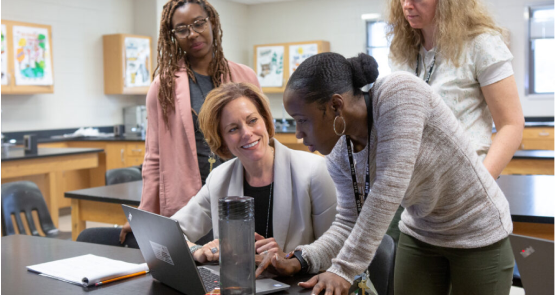As the spread of misinformation continues to negatively impact society, the question of how to improve critical thinking skills is more crucial than ever. Although a complex and multifaceted concept, critical thinking can be defined, and more importantly, learned.
One of the most important steps to developing critical thinking skills is asking yourself the right questions when making a decision or verifying a piece of information. A central tenet of critical thinking is the concept of metacognition – “thinking about your thinking” – which is the ability to ask yourself incisive questions about your thought process.
To do this well, you need to know and understand the types of questions that will help you better analyze your thought process. The following five questions can help.
How Do You Know What You Know?
Research suggests that human beings have approximately 6,000 thoughts a day, on average. These include everything from the mundane, “what will I have for breakfast,” to more profound and complex, “what am I passionate about?” All or most of these thoughts include various opinions and assumptions. For example, you may choose to avoid eggs for breakfast because you believe it causes high cholesterol. How do you know that?
Perhaps you read a story about the correlation between eggs and high cholesterol in a medical journal or maybe you saw a TikTok video by an unlicensed medical professional making the claim. The point is that one of the first elements of becoming a strong critical thinker is to examine the ideas, thoughts, and opinions you have and ask yourself why – why do you believe what you believe and how did you come to this conclusion? Doing so will help you better examine and analyze your sources.
Can You Slow Down?
Emotional responses are one of the most common deterrents to critical thinking. While it is normal to experience an occasional emotional response, learning how to control your emotions and to approach decision-making in a manner that is calm, thoughtful, and measured is an important step toward becoming a good critical thinker. Controlling emotions requires taking the time to slow down, resetting and reflecting on your thoughts and feelings before making a decision. Doing so will allow you to process your feelings, ask yourself why you feel the way you do, and decide on the best option moving forward.
Think about it in terms of deciding between a small purchase, such as choosing what salad to buy versus a big purchase, like a new car. Deciding what salad to have for dinner is a low-involvement decision that is perfectly normal to base your choice on simply how you feel at that moment. You would not, or at least you certainly should not, base your decision on a new car simply on impulse.
Smart car shoppers go through the process of identifying the need for a new car, researching options, deciding what features are most important, and comparing prices and deals before making a purchase decision. So rather than responding emotionally, they stop and reflect on their options and make a decision based on sound reasoning.
A central tenet of critical thinking is the concept of metacognition – “thinking about your thinking” – which is the ability to ask yourself incisive questions about your thought process.
Have You Considered Another Perspective?
A hallmark of a great critical thinker is the ability to examine counterarguments and to consider opposing viewpoints. Doing so helps provide a more complete picture and greater insight into any topic or issue. Similar to constructing a pros and cons list when faced with a difficult decision, considering multiple perspectives helps ensure all the necessary information is available to make a sound and informed decision, and to be a better critical thinker. The following are a few tips for considering multiple perspectives and examining counterarguments:
- Be a part of a diverse group. Regularly surround yourself with individuals of varying backgrounds – cultural, racial, socio-economic, and more. Because personal experiences shape our perspectives, being surrounded by diverse individuals helps us see issues in different ways and to consider points of view that were previously unrecognized.
- Spark healthy debates by encouraging others to challenge and disagree with your opinions and viewpoints. When you surround yourself with individuals whose opinions and perspectives may not align with yours, it can encourage a healthy exchange of ideas and debate.
- Seek out opinions and ideas that do not align with your established viewpoint. It’s important to find a balance between an opposing viewpoint and inflammatory ideas and opinions. Be careful to avoid the latter in pursuit of gaining differing perspectives.
Does Evidence Support Your Point of View?
In line with the first question, which asks individuals to examine the source of their thoughts and ideas, it is also necessary to identify and examine the evidence that supports a point of view. Is there any? Providing supporting evidence of a point of view forces you to interrogate your conclusions and confirm whether it’s right or wrong.
When gathering and examining evidence, it’s significant to separate relevant facts from extraneous information. For example, perhaps you believe social media usage is harmful to young children. Identifying what year social media began is not relevant to your argument. However, referencing an academic research study that makes a correlation between social media usage and depression in young children is relevant evidence.
Supporting evidence for a point of view can come in many forms, including academic research, quotes, news sources, and statistical data. The following are a few tips for gathering accurate and relevant evidence to support your point of view.
- Ensure that the evidence is relevant to your point of view.
- Ensure that the source of the evidence is credible. For example, a news story from a verified outlet is more credible than an anonymous post on Reddit.
- Ensure that the information provided from your evidence is current. For example, data from a research study conducted 15 years ago may not be as reliable as a study conducted two or three years ago.
- Ensure the evidence comes from an authoritative source. For example, if you are relying on an academic research study, ensure that it meets the requirements of a quality academic study. That is, it’s been published, the methodology is well-documented and can be replicated, and the study acknowledges its limitations.
A hallmark of a great critical thinker is the ability to examine counter-arguments and to consider opposing viewpoints. Doing so provides a more complete picture and greater insight into any topic or issue.
How Do Your Experiences Affect Your Opinion?
Here’s a shocking secret – we all have biases. Therefore, we are all guilty of sometimes being influenced by these biases in our thoughts, opinions, and decision-making process. Our biases may be rooted in everything from our gender, racial identity, religion, sexuality, socio-economic background, and more. However, biases aren’t inherently bad, as long as we are conscious of them and understand how they affect our thoughts, opinions, and decision-making.
Cognitive biases, for example, are a type of thought process rooted in human beings’ tendency to want to simplify information processing. An example of this is availability heuristic, which is a helpful device that allows individuals to make decisions based on past experiences and learned and stored information. A simple example is a child that knows not to play with fire because they have, in the past, accidentally burned themselves.
Conversely, sometimes biases are rooted in negative and misleading perceptions that lead to poor critical thinking. For example, biased assumptions against certain races or religions that are rooted in the perception that one is superior to another will prevent you from considering diverse points of view. Recognizing and examining our biases is essential for becoming a better critical thinker, as it requires a deeper reasoning on our thoughts, opinions, and decision-making process.
Biases aren’t inherently bad, as long as we are conscious of them and understand how they affect our thoughts, opinions, and decision-making.
Conclusion
Critical thinking is a process of interrelated steps, versus a single stand-alone skill, with some steps more challenging than others. However, they all represent important aspects of rational thought and decision-making. And one of those essential steps is the ability to ask yourself the right questions throughout your decision-making process. The five questions outlined above are an excellent place to start.
By Helen Lee Bouygues, President of the Reboot Foundation



